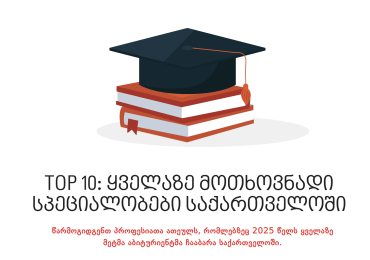SMEs drive innovative growth across the globe and serve as the backbone of innovation, social integration and employment – the key factors that fuel economic growth. Even though large enterprises are still the bigger contributor to employment in Georgia, the small and medium enterprise sector is gaining in importance. The results achieved by the EU4Business-EBRD Credit Line in preparing Georgian SMEs for business with Europe, as presented during a recent conference in Tbilisi, highlight a highly active business community that is keen to promote its products and services in Europe.
THE EU4BUSINESS-EBRD CREDIT LINE was developed by the European Bank for Reconstruction and Development (EBRD) and the EU4Business initiative with the clear mandate of supporting Georgian SMEs with loans and grants to harness opportunities afforded by the Deep and Comprehensive Trade Agreement (DCFTA) under which the European Union and Georgia have effectively removed all import duties in Georgian products and services. Having access to a market with 500 million consumers is a great opportunity for SMEs that abide by the rules of that market. However, navigating the jungle of regulations is not an easy feat for a small company. Therefore, the EU4Business-EBRD Credit Line also offers technical assistance, free-of-charge to Georgian SMEs, helping companies to focus their efforts on meeting the European Directives relevant to their specific business.
Georgian SMEs are quick to understand these advantages. According to the data presented by Massimo Bianchi, the Project Manager installed by Rina Consulting S.P.A., which is tasked with the technical support provided under the EU4Business-EBRD Credit Line, 121 project with a combined net value of just over €62 million were financed by SMEs in just 18 months. Leading are companies active in wine, beer and food production, aiming to bolster their export capability. Georgian fashion, medical herb and hazelnut suppliers are also well represented through companies like Fashion House Materia, Geo-Flowers and SRT.
As Bruno Balvanera, EBRD Director for the Caucasus, Moldova and Belarus, summarized: “We are delighted to see the first real results of our financing supporting Georgian companies. From hazelnut processing to road construction, from promoting local produce to succeeding in foreign markets – companies financed by the programme have decided to invest in the European standards and we are happy to be part of their success,”
Improving export capabilities is only one side of the coin. Food products utilizing Georgia’s abundance in agriculture are well placed to become a hit in Europe. But improving products and services offered in the domestic market are possibly of even greater importance to the Georgian economy, as they reduce the need for imported goods and services. A greater level of import substitution will sustain economic growth as much as increased export potential promises. Medical service companies have used theEU4Business-EBRD Credit Line to invest in equipment of the highest technical standards. Printing companies invested to offer higher quality services to domestic clients. And with an investment supported by theEU4Business-EBRD Credit Line loan and grant, Georgia is now home to an asphalt plant that can compete with the cleanest and environmentally most sound plants in Europe.
The impact on even regional economy and employment is evidenced by the example of Indico, a regional road construction company. Indico invested in sand and gravel processors, wheel excavators, trucks, and other portable equipment. Through these investments, the company has been able to boost its productivity, replacing old technology with environmentally friendly updates and enhancing quality, as well as improving employees’ health and safety, in line with the recommendations of project consultants. Indico has raised standards in road engineering, by investing in environmental responsibility and contributing to the overall alignment of Georgian transport infrastructure with EU standards.
Danilo Bosia, Resource Efficiency & Management Head of RINA Consulting S.p.A. highlighted: ‘Rina Consulting is the project consultant for credit lines of this nature in many countries. However, Georgian SMEs demonstrate a level of agility that surpasses what we see in other countries and this will augment their position as the mainstay of Georgia’s economy for years to come. By embracing the opportunities available, these SMEs are boosting the quality of domestic production and services to the benefit of consumers, who have access to goods produced to European Standards, contributing to overall economic performance.’
A single SME may only create limited employment opportunities compared to large corporations. However, it helps establish job security in a community and therefore promotes more spending and investment, facilitating a thriving local economy.
With the EU4Business-EBRD Credit Line, the ground for strengthening the SME sector has been laid, ensuring growth across a wide variety of sectors, increasing the competitiveness of Georgian SMEs in Europe as well as at home through compliance with the regulations of the Deep and Comprehensive Free Trade Agreement.
















